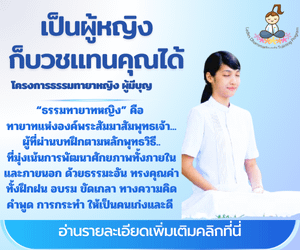ศีลข้อที่ 4 คือ มุสาวาทา
ศีลข้อที่ 4 หรือ มุสาวาทา คือ การงดเว้นจากการพูดเท็จ ซึ่งหมายถึงการรักษาความซื่อสัตย์ในคำพูดและการไม่กล่าวคำหลอกลวงหรือบิดเบือนความจริง โดยองค์ประกอบของศีลข้อนี้มี 4 องค์หลัก ๆ ซึ่งแสดงถึงขั้นตอนการเกิดของการพูดเท็จอย่างครบถ้วน ดังนี้:

- มีจิตคิดจะพูดเท็จ องค์นี้คือการที่บุคคลมีเจตนาในใจที่จะพูดคำเท็จหรือหลอกลวงผู้อื่น กล่าวคือเป็นการตั้งใจบิดเบือนหรือพูดให้ผิดไปจากความจริง เจตนานี้เป็นจุดเริ่มต้นที่สำคัญ เพราะถ้าไม่มีเจตนาจะพูดเท็จ ก็ไม่ถือว่าผิดศีลในข้อนี้
- พยายามพูดเท็จ เป็นการลงมือพูดออกไปจริง ๆ ตามเจตนาที่คิดไว้ เช่น การบิดเบือนข้อเท็จจริงหรือหลอกให้ผู้อื่นเชื่อในสิ่งที่ไม่เป็นความจริง ไม่ว่าจะพูดโดยตรงหรือพูดอ้อมให้ผู้อื่นเข้าใจผิด องค์นี้แสดงถึงการที่คำพูดเท็จนั้นได้ออกจากปากผู้พูดจริง
- ผู้ฟังได้ยินหรือรับฟัง ข้อนี้คือการที่มีผู้ฟังคำพูดนั้นและรับรู้ในสิ่งที่ผู้พูดกล่าวออกไป ถ้าไม่มีคนรับฟังหรือได้ยิน คำพูดนั้นก็ไม่มีผลต่อการเข้าใจผิด การรับฟังนี้เป็นองค์ประกอบที่สำคัญ เพราะการพูดเท็จจะส่งผลก็ต่อเมื่อมีคนรับฟังและได้รับข้อมูลที่ไม่ตรงกับความจริง
- ผู้ฟังเข้าใจผิดตามที่ผู้พูดต้องการ องค์นี้คือการที่ผู้ฟังเข้าใจผิดไปตามที่ผู้พูดเจตนาจะให้เป็น กล่าวคือ ผู้ฟังหลงเชื่อว่าคำพูดนั้นเป็นจริง ทั้งที่จริงแล้วเป็นคำเท็จ หากผู้ฟังไม่เข้าใจผิดหรือไม่เชื่อในสิ่งที่ได้ยิน การพูดเท็จนั้นก็ถือว่ายังไม่ครบองค์ของศีลข้อนี้
องค์ประกอบของการผิดศีลข้อที่ 4
ทั้ง 4 องค์นี้ทำให้การผิดศีลข้อที่ 4 เป็นการกระทำที่มีเจตนาและมีผลกระทบต่อผู้อื่นอย่างแท้จริง เพราเป็นการทำให้เกิดความเข้าใจผิด จึงเป็นเหตุให้ศีลข้อนี้สำคัญในการสร้างความเชื่อใจและความซื่อสัตย์ต่อกันในสังคม
The Fourth Precept in Buddhist ethics is about
refraining from false speech, meaning the commitment to honesty and avoiding deceitful or misleading statements. This precept consists of four main elements, each representing a stage in the act of lying:

- Intention to Speak Falsely
This element refers to having the intention or desire in one’s mind to speak something untrue or to deceive others. It is the deliberate decision to distort or misrepresent the truth. Without this intention, it is not considered a violation of this precept.
- Making an Effort to Speak Falsely
This element means actually speaking the falsehood according to the intention. This could involve distorting facts or manipulating words to lead others to believe something untrue. It is not limited to direct lies; it also includes saying things indirectly to mislead others.
- Someone Hears and Receives the False Speech
This element is when the statement is received by a listener, meaning that someone hears or understands what was said. If no one hears the false statement, there is no impact on another person’s understanding, and thus, the act of lying is incomplete.
- The Listener Believes or Understands Incorrectly
This final element involves the listener actually misunderstanding the truth based on what was said. The listener believes the false statement to be true, which completes the false speech because the intended deception has succeeded. If the listener does not believe or is not deceived, the act does not meet all the conditions to violate this precept fully.
These four elements demonstrate that breaking the Fourth Precept is an intentional act that misleads others, emphasizing the importance of trust and honesty in social relationships.




















